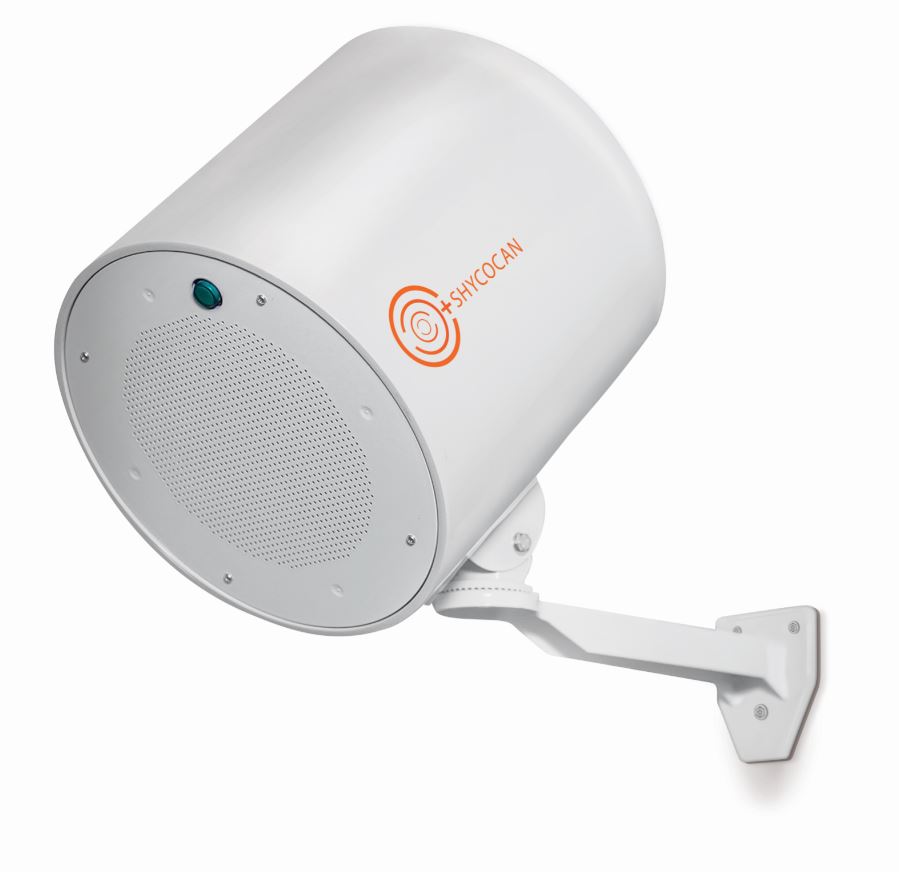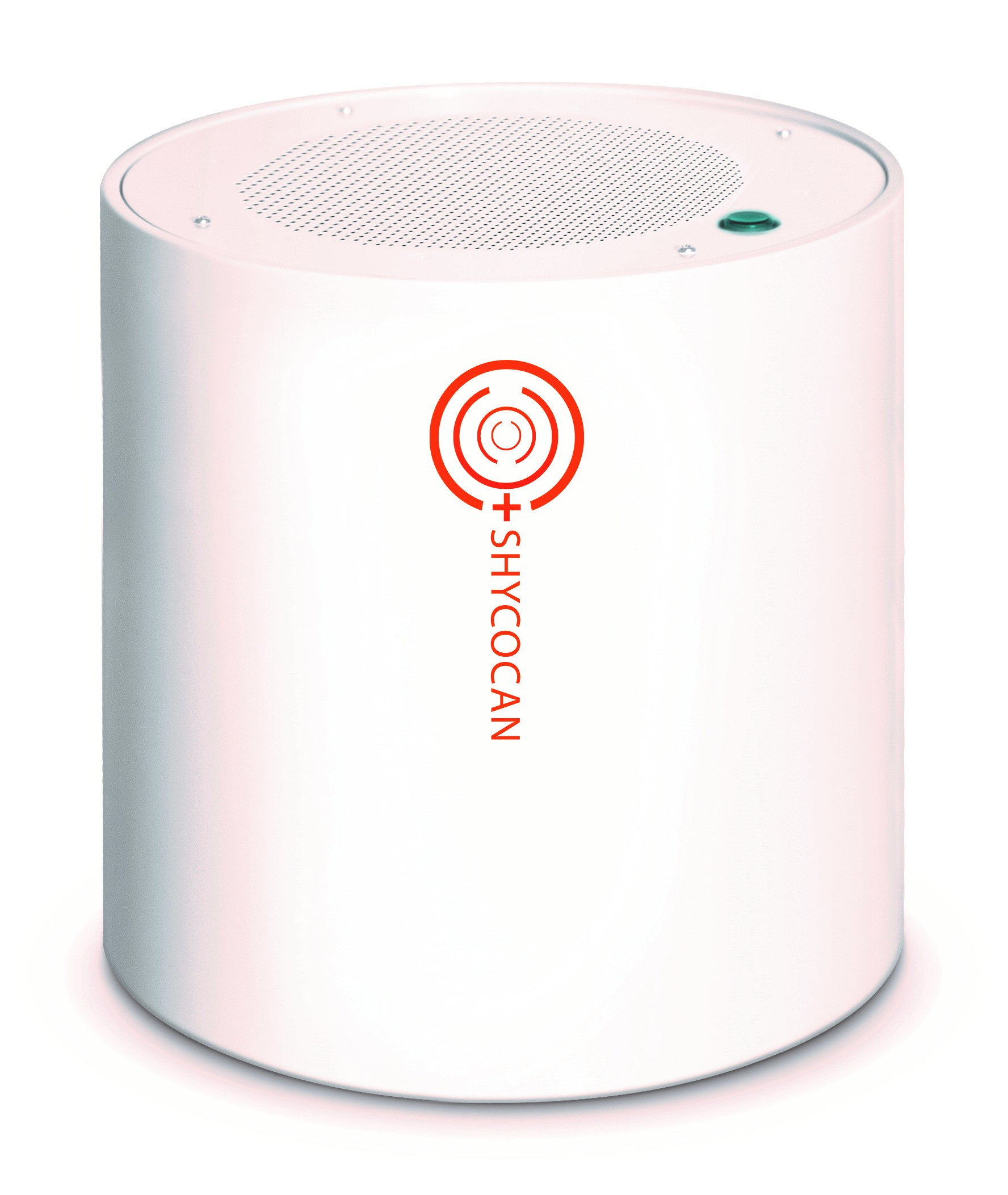Shycocan, World’s First Virus Attenuation Device Developed in India, Gets Businesses Back on Track in Pandemic Times
· The device, invented by well-known Indian scientist Dr. Rajah Vijay Kumar, has been proven to disable the Coronavirus and Influenza virus families in indoor spaces which carry the highest risk of transmission
· SHYCOCAN is Scientifically Evidenced to Attenuate/Neutralize 99.994% of Viral particles on Surfaces (MS2 Phage) and 100% in Air (Avian Coronavirus)
· Shycocan also works on all current and future variants and mutants of these viruses
· Shycocan is seeing a robust demand from institutional buyers in Chennai, with several devices already installed in the city
Chennai/ March 4, 2021: A one-of-its-kind virus attenuation device developed by well-known Indian scientist and inventor Dr. Rajah Vijay Kumar is helping curb the spread of Coronavirus in indoor spaces. It is enabling schools, colleges, homes and businesses like hospitals, hotels, offices, restaurants, auditoriums, transportation, retail, and airports get back on track and serve their internal and external customers in a safe environment.
According to Shycocan Corporation, there is a robust demand for this unique device from Chennai, with dozens of businesses and institutions showing interest. Several Shycocan devices have already been installed in the city and more enquiries are coming in from institutional buyers who want to protect their customers, employees and visitors from the transmission of Coronavirus at their premises in times of the pandemic.
The cylindrical device is called Shycocan, short for Scalene Hypercharge Corona Canon. It has been found to be effective in securing indoor spaces from the spread of not only the Coronavirus family which cause diseases like pneumonia, ARDS, SARS, MERS, COVID-19 and other Coronavirus-induced diseases, but also the Influenza family of viruses which trigger annual seasonal flu and epidemics such as Swine Flu and Bird Flu. Remarkably, Shycocan also works on all current and future variants and mutants of these viruses, protecting people’s health and saving millions of hours of lost productivity.
Alok Sharma, Chief Executive Officer, Shycocan Corporation, said, “Shycocan has been proven to disable the Coronavirus and Influenza virus families in indoor spaces with 99.994% efficacy, as per various virology reports from accredited laboratories worldwide. There is no adverse impact to humans. The device does not affect any other bacteria or fungi, thus maintaining a balance of microbes in the environment. The Shycocan device is already in use in India, US and many countries in Europe, Asia Pacific, Australia, New Zealand, Middle East, and Africa. We are also introducing this innovative made-in-India device in several other countries. It is already seeing a robust demand from institutional buyers both in India and abroad.
Chennai is a very important market for us, and we expect to sell several thousand Shycocan devices in the city this year. The installations would ensure the safety of people inside enclosed spaces from the spread of the entire Coronavirus family and Influenza family of viruses.”
Shycocan curbs the spread of Coronavirus and influenza viruses by disrupting the process by which they attack humans and animals. The human cell membrane has a negative membrane potential while Coronavirus is a positive-charge virus, whose S-Protein attaches to the human cell and uses its cellular mechanism like a photocopy machine to duplicate itself. Shycocan works by neutralizing its positive charge and disabling the ability of the Coronavirus particles to attach itself to a host cell.
Dr. Rajah Vijay Kumar, Inventor of Shycocan and the Global Chairman of Organisation De Scalene, developed a specialized device made of a super-alloy after a decade of research which produces Photons of high intensity when excited. Upon striking solid surfaces like particles in the air and tables, chairs, walls, etc. in any space, these photons emit electrons. The electrons get attached to the positive protein on the shell of the Coronavirus and Influenza families of viruses, neutralizing its positive charge and preventing it from infecting other people. In the presence of Shycocan, anyone touching a previously infected surface will not contract the virus as it would have been attenuated. The Shycocan device provides far greater protection. The super-alloy that generates photons does not deteriorate, due to which Shycocan has a long lifespan and requires minimal servicing and no consumables.
Dr. Rajah Vijay Kumar, who holds over 30+ inventions globally, said, “Coronavirus-type outbreaks are occurring with faster intermittent frequencies. The Coronavirus family has got more infectious and deadly with successive mutations in the last 17 years, underscoring the importance of a device like Shycocan. The biggest challenge of this virus is its infectivity or virulence. Breaking the chain of infectivity requires focused work on indoor environments because they carry the highest risk of transmission.”
He added, “In 2017, our campus in Bengaluru experienced many incidents of seasonal flu, compelling me to design, build and install the device which was later christened Shycocan. A year later, the incidence of seasonal flu was almost totally absent from the campus. When the COVID-19 pandemic struck, the device was sent for testing and regulatory compliances to global laboratories and found to be equally effective against Coronaviruses. It was overwhelming to realize that we had already created the world’s first technology to fight the Coronavirus pandemic long before imagining the possibility of such a crisis taking the entire world in its grip.”
Shycocan is a well-designed device that is effective and safe and has been thoroughly tested. It neither uses, nor emits radiation, chemicals, ozone or any material that harms humans or the environment. A single device when mounted has an effective coverage area of 1,000 Sq. Ft (or 10,000 cubic feet). Multiple devices can be installed to cover a larger indoor space. Shycocan has widespread usage across market segments like hospitals, clinics, schools, higher education institutions, banking sector, manufacturing and retail outlets, hospitality sector, government offices, real estate corporations and businesses.






